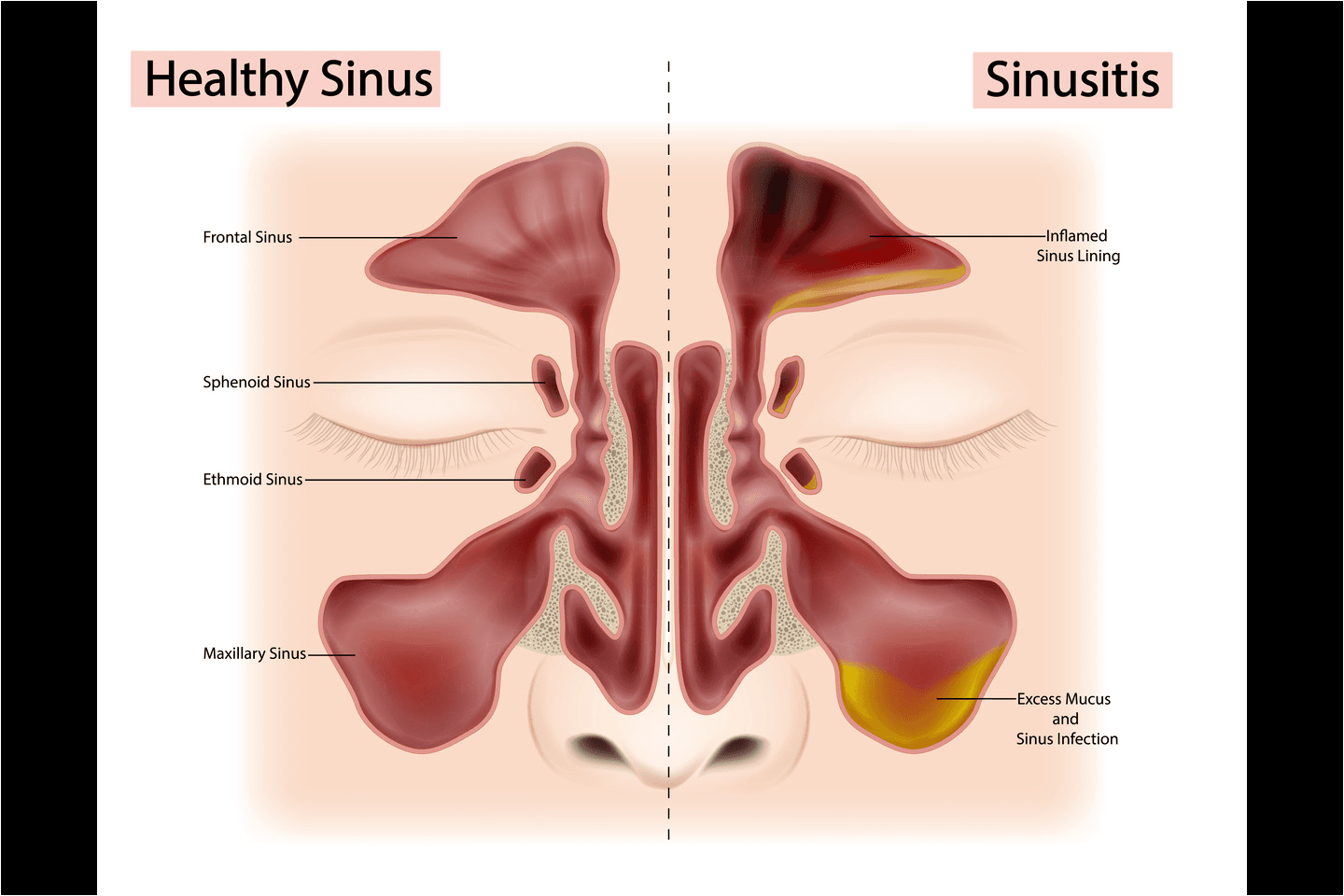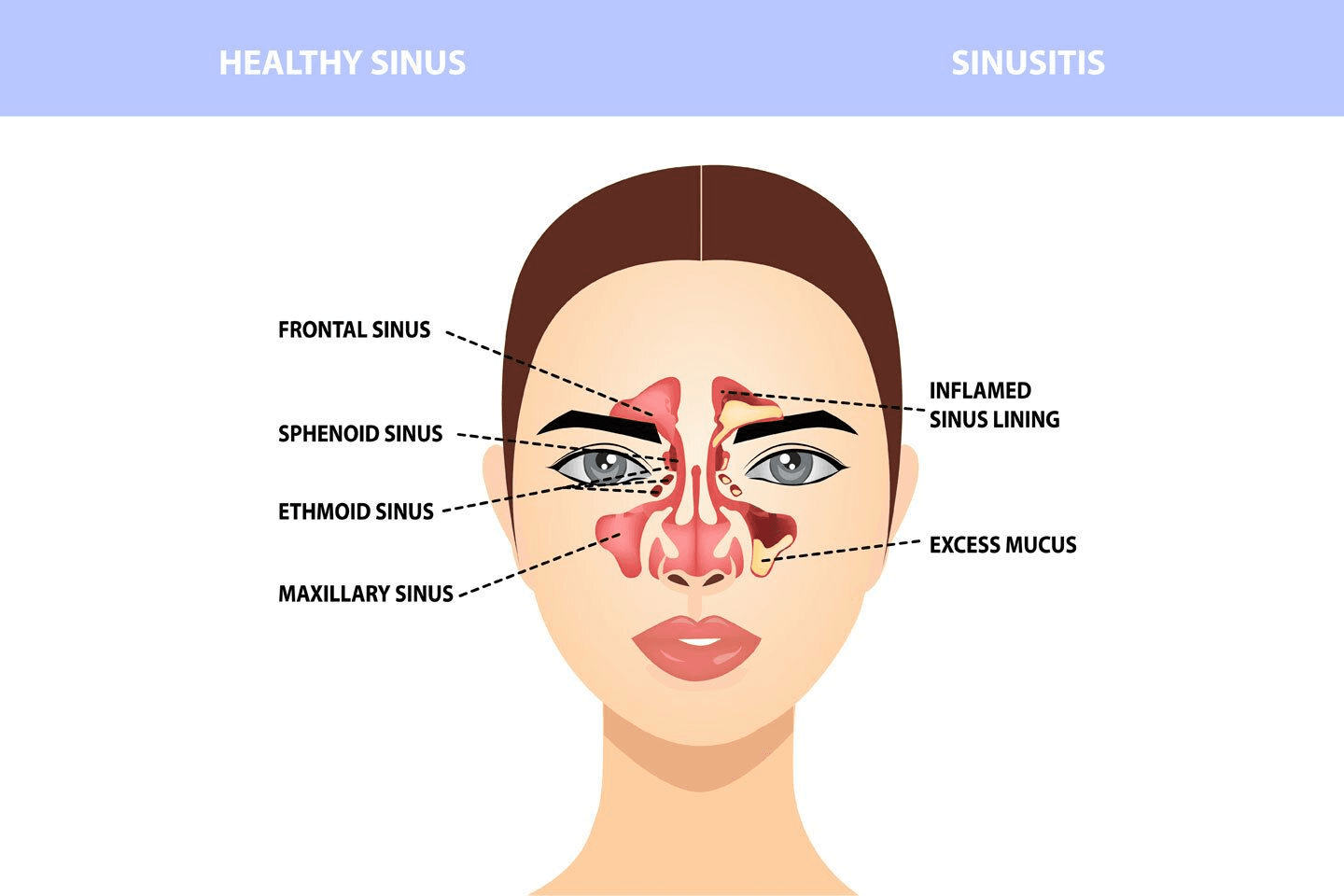
Why Sinusitis Worsens During the Monsoon? Discover Effective Strategies to Cope
As the first raindrops of the monsoon tap against your window, the refreshing scent of wet earth fills the air. For many, this signals a time for warm evenings and tea. However, for those struggling with sinusitis, this season can be less about comfort and more about congestion, headaches, and a general feeling of unease. Ever wondered why sinusitis flares up so fiercely during the monsoon? And more importantly, how can you find relief? Let’s explore the reasons behind this seasonal aggravation and uncover effective strategies to keep sinusitis at bay during the rainy months.
What are Sinuses?
The sinuses are air-filled cavities located in the facial bones around the nose. They play a crucial role in the respiratory system, including humidifying and filtering the air we breathe. When the sinuses become inflamed due to infection, allergies, or other irritants, they can swell and produce excess mucus, leading to the uncomfortable symptoms of sinusitis.
Types of Sinusitis
Sinusitis can be categorized into four main types:
- Acute Sinusitis: This type typically lasts for up to four weeks and is often triggered by a cold or allergies.
- Subacute Sinusitis: This form persists for four to twelve weeks and might result from untreated acute sinusitis.
- Chronic Sinusitis: Characterized by symptoms lasting for twelve weeks or longer, chronic sinusitis often results from infections or nasal polyps.
- Recurrent Sinusitis: Occurs when a person experiences several episodes of acute sinusitis within a year.
Common Symptoms of Sinusitis
Regardless of the type, sinusitis presents several common symptoms:
- Nasal congestion
- Facial pain or pressure
- Headache
- Thick, discolored mucus discharge
- Reduced sense of smell and taste
- Cough or throat irritation
Why Sinusitis Worsens During the Monsoon?
Increased Humidity: Monsoon season in India is synonymous with high humidity levels. Excessive moisture in the air can exacerbate sinusitis by encouraging the growth of mould and mildew, both of which can irritate the sinuses. Additionally, high humidity can cause the nasal passages to swell, leading to increased congestion and discomfort.
Temperature Fluctuations: The monsoon brings not only rain but also significant fluctuations in temperature. These rapid changes can trigger sinus inflammation as the body struggles to adapt. The alternating hot and cold air can cause the sinus membranes to swell, increasing the likelihood of congestion and infection.
Airborne Allergens: During the monsoon, the damp environment becomes a breeding ground for various allergens, such as mould spores, dust mites, and pollen. These allergens can easily be inhaled and irritate the sinuses, leading to inflammation and worsening sinusitis symptoms.
Increased Incidence of Respiratory Infections: Monsoon season also sees a rise in respiratory infections, such as the common cold and flu. These infections can easily spread in the humid, crowded conditions typical of the rainy season. When a respiratory infection occurs, it often leads to secondary inflammation of the sinuses, exacerbating sinusitis symptoms.
Strategies to Cope with Sinusitis During the Monsoon
Maintain Good Hygiene: Practicing good hygiene is essential to prevent sinusitis. Regular hand washing can help reduce the spread of germs that can cause respiratory infections. Additionally, keeping your living environment clean and dry can minimize exposure to mould and other allergens.
Avoid Allergens: Minimizing exposure to allergens is crucial during the monsoon. Dehumidifiers are used to control indoor humidity levels, and air filters are cleaned regularly. Avoid areas where mould and dust mites are likely to thrive, and consider using allergen-proof bedding.
Stay Hydrated: Drinking plenty of fluids helps thin mucus, making it easier for your sinuses to drain. Staying well-hydrated can also prevent your nasal passages from becoming dry and irritated.
Use Saline Nasal Sprays: Saline nasal sprays can help keep the nasal passages moist and flush out allergens and irritants. Using a saline spray regularly can reduce congestion and prevent the sinuses from becoming inflamed.
Over-the-Counter Medications: Over-the-counter medications, such as decongestants and antihistamines, can provide temporary relief from sinusitis symptoms. These medications help reduce nasal swelling and congestion, making it easier to breathe.
Steam Inhalation: Inhaling steam is a simple and effective way to alleviate sinusitis symptoms. Steam helps open up the nasal passages, loosens mucus, and reduces inflammation. Adding a few drops of eucalyptus oil to the water can enhance the benefits.
Maintain a Healthy Diet: A balanced diet rich in vitamins and minerals can boost your immune system and help your body fight off infections. Foods high in antioxidants, such as fruits and vegetables, can help reduce inflammation and support overall health.
Regular Exercise: Regular physical activity can improve circulation and help clear out the nasal passages. Exercise also boosts the immune system, making it easier for your body to fend off infections.
When to Seek Medical Attention for Sinusitis
While many cases of sinusitis can be managed at home, it's essential to seek medical advice if symptoms persist or worsen. Certain symptoms indicate the need for professional medical evaluation:
- Severe headache
- High fever
- Vision changes
- Swelling around the eyes
If you experience any of these symptoms, it’s crucial to consult a healthcare provider. They may recommend various treatments, including prescription medications or, in severe cases, surgical intervention such as sinus balloon surgery aka balloon sinus dilation.
Sinus Balloon Surgery and Balloon Sinus Dilation
Sinus balloon surgery, also known as balloon sinus dilation, is a minimally invasive procedure used to treat chronic sinusitis. During this procedure, a small balloon is inserted into the sinus passage and inflated to widen the passage and restore normal drainage. This treatment can provide significant relief for patients with chronic or recurrent sinusitis, reducing the need for more invasive surgical options.
MESIRE by Meril
Mesire™ by Meril is a balloon catheter designed for sinusitis procedures. It is used in sinus balloon dilation to gently open blocked sinus passages, providing relief from sinusitis symptoms. The catheter is engineered to ensure precise dilation and is made from high-quality materials to enhance patient safety and comfort. MESIRE aims to improve the effectiveness of sinus surgeries by facilitating accurate and controlled dilation of the sinus openings, thereby helping to restore normal sinus drainage and function.
Conclusion
Sinusitis can be particularly challenging to manage during the monsoon, but understanding the factors that contribute to its worsening and implementing effective coping strategies can make a significant difference. By maintaining good hygiene, avoiding allergens, staying hydrated, and using appropriate treatments, both doctors and patients can work together to alleviate the discomfort of sinusitis and enjoy the rainy season with fewer health concerns. If symptoms persist or become severe, seeking medical advice is crucial to ensure proper treatment and relief.
References
https://www.merillife.com/blog/medtech/sinus-causes-symptoms
https://www.webmd.com/allergies/sinus-tips
https://www.mayoclinic.org/symptoms/nasal-congestion/basics/when-to-see-doctor/sym-20050644#:~:text=For%20adults%20%E2%80%94%20See%20a%20health,have%20sinus%20pain%20or%20fever.
https://www.merillife.com/blog/medtech/sinus-surgery
https://www.pennmedicine.org/for-patients-and-visitors/patient-information/conditions-treated-a-to-z/sinus-infections-sinusitis#:~:text=The%20sinuses%20are%20air%2Dfilled,to%20flow%20through%20the%20sinuses.



